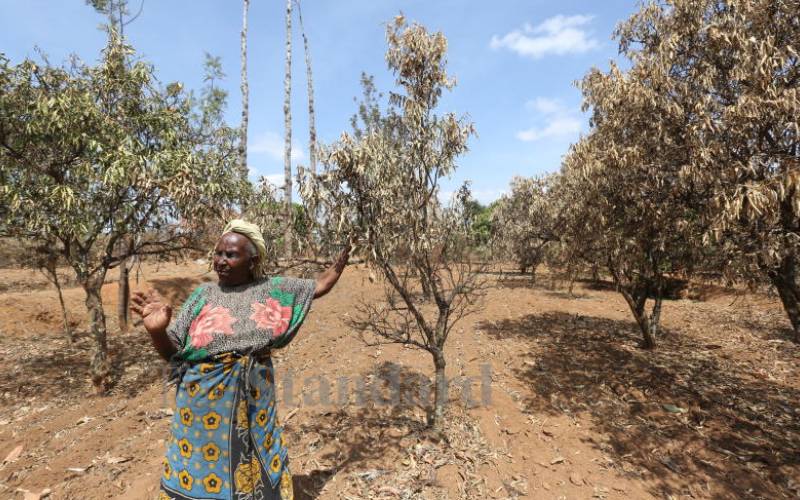×
The Standard e-Paper
Join Thousands Daily

Beatrice Ndunge at her dried-up fruit farm in Unoa Kamunyolo village, Makueni County. [Boniface Okendo, Standard]
Puddles of water pool intermittently across the wide bed of Kaiti River in Makueni County, which ushers you into Wote town.







